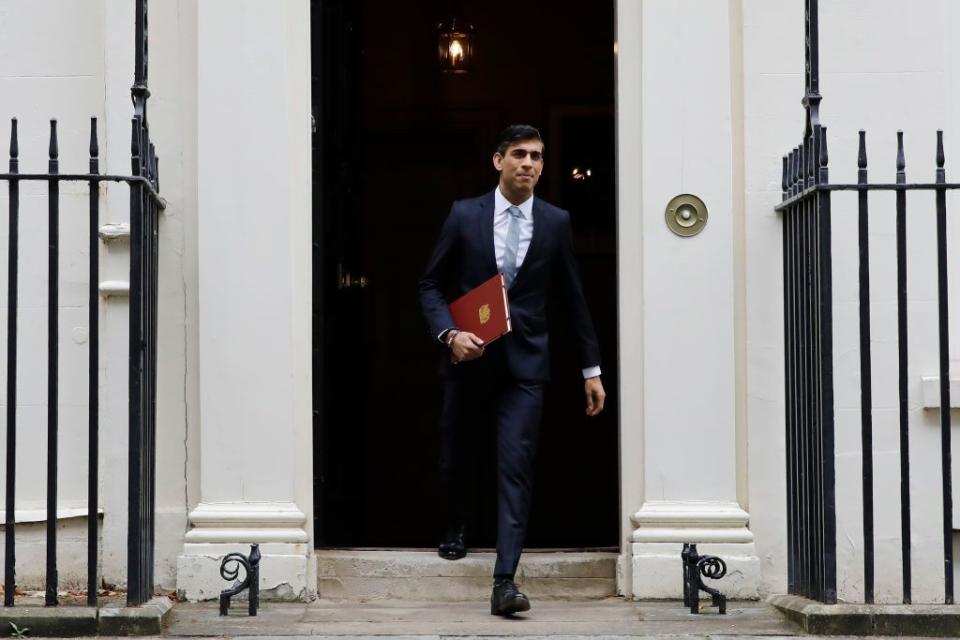House Price Reductions And Discounted Meals Out: What The Mini-Budget Actually Means For You

Chancellor of the Exchequer Rishi Sunak has just announced a series of economic measures in an attempt to revive the struggling economy in the aftermath of the Coronavirus pandemic - termed the 'mini-budget'.
Amid mounting criticism over the way the government has handled the pandemic, this summer statement may bring about a few sighs of relief. Although, of course, response has not been without criticism.
Unpacking all the jargon and political lexicon, here we explain a series of measures announced by the Chancellor today and what they might actually mean for you:
A 'holiday' on Stamp Duty
The Chancellor has removed stamp duty from the first £500,000 of the cost of a property, from now until March 31, 2020. For first time buyers (who currently don't pay stamp duty up to £300,000) this means that the threshold for paying stamp duty has increased by another £200,000, which could really save you some money.
If the house you're trying to buy is valued at less than £500,000, you won't need to pay stamp duty on it at all, as long as you complete your sale before the end of March next year.

This news has been received well by some, particularly those who were already in a position to buy in the next eight months. However, others have pointed out that this bracket appears to be targeted at buyers who could already afford deposits and are looking to buy in London and the South East where houses are typically more expensive. Experts have also suggested that this could mean a property buying boom over the next few months which, in turn, could push house prices up overall. There was also no mention of helping renters in Sunak's House of Commons speech.
Abolishing stamp duty temporarily for houses under £500k seems gesture targeted at London & SE housing market. Average prices elsewhere are under £300k
How is this levelling up UK? #SummerStatement #minibudget— Caroline Lucas (@CarolineLucas) July 8, 2020
Why are renters -a group made up of around 20 million people - consistently be an afterthought for this government? Surely, they can make the connection that renters in debt & struggling will impact other parts of the economy? Not to mention the moral imperative to help them
— Vicky Spratt (@Victoria_Spratt) July 8, 2020
Grants for employers to keep people on after furlough
One of the biggest worries for people who have been furloughed is their job security. After the government's subsidised furlough scheme ends in October, the concern is that struggling industries may be forced to make cuts. To combat this, Sunak has announced £1,000 grants per employee for companies if they keep on currently furloughed staff.
Eating out discounts
In the month of August, customers dining out after months of lockdown can enjoy discounted meals on certain days of the week in participating restaurants and pubs.

The 'Eat Out To Help Out' initiative will give customers 50% off, up to the value of £10 per person, on meals from Monday to Wednesday, with the government footing the remainder of the cost to the restaurant.
VAT reductions for the hospitality sector
One of the hardest hit industries during the pandemic has been the hospitality and tourism sector. Sunak today announced a decrease in VAT payments from 20% to 5% for hotels, accommodation, pubs, restaurants, cafes and tourist attractions which, theoretically, could make enjoying all these things cheaper for the consumer. This 15% cut in VAT will last six months until January 2021, the Chancellor said.
The Chancellor has firmly closed the door on the damaging austerity of the past decade. But while there’s much for young people, the energy sector and UK businesses to celebrate, there’s little for public services and workers who’ve kept the country going #summerstatement
— Dave Prentis (@DavePrentis) July 8, 2020
However, there has been criticism from unions, including the TUC, that other struggling sectors, such as the aviation and manufacturing sector, have been missed out of these latest announcements.
Green grants
The government is pledging to consider the environment in its new economic plans, saying they will give vouchers worth up to £5,000 - but with means-testing could be as high as £10,000 for poorer households - to make eco-friendly changes to their homes. Money expert Martin Lewis says this includes household updates like double glazing windows and better insulation which will hopefully reduce household carbon emissions.
£2bn Green Home Grant: As previously tagged, from Sept vouchers upto £5k for households/landlords to pay 2/3 cost of green upgrades or all of it for low inc households eg insulation, double glazing.
Basically old Green deal but thankfully without loan element.#SummerStatement— Martin Lewis (@MartinSLewis) July 8, 2020
Kickstart grants for young people
In response to fears that it will be harder than ever for young people to get their first job in the post-Covid world, Sunak announced a new programme of financial incentives called 'Kickstart'. If companies create brand new roles for 16-24 year olds paying at least the minimum wage with training included, the government will pay their wages for the first six months.
Similarly, to encourage companies to create apprenticeships they will receive £2,000 per apprentice under 25.
Like this article? Sign up to our newsletter to get more articles like this delivered straight to your inbox.
In need of more inspiration, thoughtful journalism and at-home beauty tips? Subscribe to ELLE's print magazine now and pay just £6 for 6 issues. SUBSCRIBE HERE
You Might Also Like


